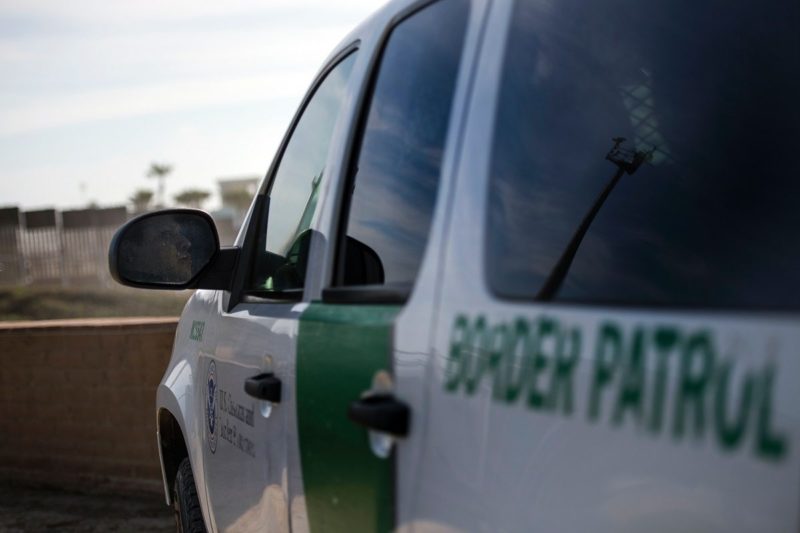Federal Judge Blocks Trump’s Threat to ‘Sanctuary Cities’ (Updated)
The ruling means the government can’t block federal funds from going to sanctuary cities, but the government is not blocked from enforcing conditions on federal grants or from creating a definition of sanctuary jurisdictions.

UPDATE, November 15, 1:53 p.m.: A federal judge on Wednesday blocked the federal government’s attempt to keep grant money from so-called sanctuary cities, the Inquirer reports. The ruling comes three months after Philadelphia officials filed a lawsuit against Attorney General Jeff Sessions over his funding attacks on the city.
A federal judge on Tuesday temporarily blocked President Trump’s executive order threatening federal funds for so-called sanctuary cities. This is the third Trump executive order on immigration blocked by federal courts.
U.S. District Court Judge William H. Orrick applied his ruling nationwide, writing that Trump overstepped his powers with the January order that attempted to cut off federal funding to cities that limited their cooperation with immigration enforcement.
The government still has some “wiggle room,” as CNN reported. The ruling means the federal government can’t block funds from going to cities, but it is not blocked from enforcing conditions on federal grants or creating a definition of sanctuary jurisdictions.
Many city officials have spoken out against Trump’s threats to sanctuary cities, including New York Attorney General Eric Schneiderman, who said in a March statement that state and local governments and law enforcement have “broad authority under the constitution to not participate in federal immigration enforcement.”
Schneiderman has issued legal guidance for sanctuary jurisdictions that provided tools to protect immigrant communities. Other city officials, however, have folded.
On April 3, Lansing, Michigan, defiantly and unanimously declared itself a sanctuary city. On April 12, the city council rescinded the resolution, likely because of Attorney General Jeff Sessions’s March 27 White House briefing, where Sessions re-iterated the Trump administration’s threat to pull $4.1 billion in federal grants for jurisdictions that fail to fully engage in immigration enforcement. In order to continue receiving federal funds, Sessions explained, state and local jurisdictions would need to certify they are complying with federal immigration laws.
Local law enforcement refusing to fully engage in immigration enforcement isn’t necessarily a sign that a jurisdiction identifies as a “sanctuary city.” It can be about protecting itself from pricy lawsuits: When it comes to not honoring ICE detainer requests, for example, many legal and constitutional concerns exist. Courts have instructed communities not to comply with these requests in order to avoid lawsuits.
While cities have fretted over their potential loss of federal funding, it is undocumented people who are suffering under the threats being made by Trump. In Los Angeles, for example, instances of domestic violence and sexual assault are going unreported because victims fear any interaction with law enforcement will lead to their deportation. Some jurisdictions have had sanctuary policies in place for nearly 30 years to little fanfare. This has helped establish trust in undocumented communities, but that trust has been jeopardized by the Trump administration, with undocumented immigrants fearful of reporting crimes.
Tuesday’s ruling is part of an ongoing effort by the Trump administration to intimidate and punish so-called sanctuary cities.
Immigration and Customs Enforcement (ICE) in March released its first report on declined detainers. A detainer is a common tool used by ICE to apprehend, detain, and deport undocumented people who come in contact with local law enforcement agencies. Made in writing, the request typically asks “that a local jail or other law enforcement agency detain an individual for an additional 48 hours (excluding weekends and holidays) after his or her release date in order to provide ICE agents extra time to decide whether to take the individual into federal custody for removal purposes,” the American Civil Liberties Union explains on its site.
The misleading Declined Detainer Outcome Report met Trump’s call for a weekly list of the alleged crimes committed by undocumented people, while purporting to “highlight jurisdictions that choose not to cooperate with ICE detainers or requests for notification, therefore potentially endangering Americans.” After two weeks, ICE was forced to suspend the weekly report, citing excessive errors as the reason for ending the effort. The reports were a haphazard attempt to shame sanctuary cities, and they were riddled with mistakes, including mixed-up names and jurisdictions. The reports included cases involving people who had already been taken into ICE custody or had never been released, according to the Los Angeles Times.
Trump’s bullying of sanctuary cities has confused some advocates, given that so many of these jurisdictions offer little more than statements of solidarity, provide no tangible protections, and still work with ICE, as Rewire reported. There is no unifying definition or law in the more than 200 jurisdictions that identify as sanctuary cities and “protections” offered are largely outlined by law enforcement with little to no input from undocumented people.
Even in cities such as Los Angeles that are widely believed to protect undocumented immigrants, simply being undocumented in the wrong place can trigger your deportation.
This was illustrated by the recent detainment of Teresa de Jesús Vidal Jaime, a mother of two, including the immigrant rights activist Claudia Rueda. Border Patrol agents, working with the Los Angeles County Sheriff’s Department, detained Vidal Jaime at her Boyle Heights apartment complex after a Border Patrol drug investigation led to her home. Her family asserts she was not connected to the drugs found at the location. Border Patrol alleges otherwise. Vidal Jaime is now in deportation proceedings. A protest in Downtown Los Angeles yesterday called for Vidal Jaime’s release.
The White House in a statement said the ruling “undermines faith in our legal system and raises serious questions about circuit shopping. But we are confident we will ultimately prevail in the Supreme Court, just as we will prevail in our lawful efforts to impose immigration restrictions necessary to keep terrorists out of the United States.”
